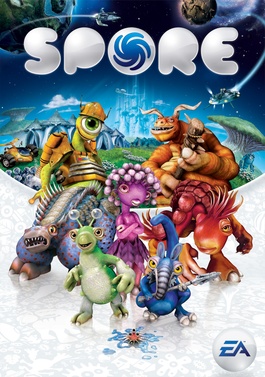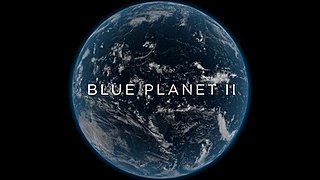
A planetary nebula is a type of emission nebula consisting of an expanding, glowing shell of ionized gas ejected from red giant stars late in their lives.

Sir David Frederick Attenborough is a British broadcaster, biologist, natural historian and author. He is best known for writing and presenting, in conjunction with the BBC Natural History Unit, the nine natural history documentary series forming the Life collection, a comprehensive survey of animal and plant life on Earth.

The Life of Mammals is a nature documentary series written and presented by David Attenborough, first transmitted in the United Kingdom from 20 November 2002.

Animal Planet is an American multinational pay television channel, and associated AnimalPlanet.com website content, owned by the Warner Bros. Discovery Networks unit of Warner Bros. Discovery. First established on June 1, 1996, the channel is primarily devoted to series and documentaries about wild animals and domestic pets.

Robert Newman is an English comedian, author and political activist. Newman found mainstream fame with The Mary Whitehouse Experience before forming a successful partnership with one of the programme's other comedians, David Baddiel, in the early 1990s.

A nature documentary or wildlife documentary is a genre of documentary film or series about animals, plants, or other non-human living creatures, usually concentrating on video taken in their natural habitat but also often including footage of trained and captive animals. Sometimes they are about wildlife or ecosystems in relationship to human beings. Such programmes are most frequently made for television, particularly for public broadcasting channels, but some are also made for the cinema medium. The proliferation of this genre occurred almost simultaneously alongside the production of similar television series which is distributed across the world.

The Eleventh Doctor is an incarnation of the Doctor, the protagonist of the British science fiction television series Doctor Who. He is played by Matt Smith in three series as well as five specials. As with previous incarnations of the Doctor, the character has also appeared in other Doctor Who spin-offs. Smith's portrayal of the Eleventh Doctor has been met with praise.

Neil Nightingale is a British freelance wildlife filmmaker, executive producer and creative consultant with over 35 years experience at the BBC. From 2009 to 2018 he was the creative director of BBC Earth, BBC Worldwide's global brand for all BBC nature and science content.
"Daleks in Manhattan" is the fourth episode of the third series of British science fiction television series Doctor Who, which was first broadcast on BBC One on 21 April 2007. It is part one of a two-part story. Its concluding part, "Evolution of the Daleks", was broadcast on 28 April.
"Evolution of the Daleks" is the fifth episode of the third series of the revived British science fiction television series Doctor Who. It was first broadcast on BBC One on 28 April 2007, and is the conclusion of the two-part story begun in "Daleks in Manhattan" on 21 April.

Galápagos is a three-part BBC nature documentary series exploring the natural history of the Galápagos Islands and their important role in the formation of Charles Darwin's theory of evolution. It was first transmitted in the UK on BBC Two in September 2006.

Iain Simpson Stewart is a Scottish geologist who is currently Jordan-UK El Hassan bin Talal Research Chair in Sustainability at the Royal Scientific Society in Jordan. He is a UNESCO Chair in Geoscience and Society and formerly a member of the Scientific Board of UNESCO's International Geoscience Programme. Described as geology's "rock star", Stewart is best known to the public as the presenter of a number of science programmes for the BBC, notably the BAFTA nominated Earth: The Power of the Planet (2007).

Frozen Planet is a 2011 British nature documentary series, co-produced by the BBC ZDF and The Open University. It was filmed by the BBC Natural History Unit. The production team, which includes executive producer Alastair Fothergill and series producer Vanessa Berlowitz, were previously responsible for the award-winning series The Blue Planet (2001) and Planet Earth (2006), and Frozen Planet is billed as a sequel of sorts. David Attenborough returns as narrator. It is distributed under licence by the BBC in other countries, Discovery Channel for North America, ZDF for Germany, Antena 3 for Spain and Skai TV for Greece.

Spore is a 2008 life simulation real-time strategy god game developed by Maxis and published by Electronic Arts for Microsoft Windows and Mac OS X. Designed by Will Wright, it covers many genres including action, real-time strategy, and role-playing games. Spore allows a player to control the development of a species from its beginnings as a microscopic organism, through development as an intelligent and social creature, to interstellar exploration as a spacefaring culture. It has drawn wide attention for its massive scope, and its use of open-ended gameplay and procedural generation. Throughout each stage, players are able to use various creators to produce content for their games. These are then automatically uploaded to the online Sporepedia and are accessible by other players for download.

Nature's Great Events is a wildlife documentary series made for BBC television, first shown in the UK on BBC One and BBC HD in February 2009. The series looks at how seasonal changes powered by the sun cause shifting weather patterns and ocean currents, which in turn create the conditions for some of the planet's most spectacular wildlife events. Each episode focuses on the challenges and opportunities these changes present to a few key species.

Planet Earth is a seven-episode 1986 PBS television documentary series focusing on the Earth, narrated by Richard Kiley.
Attenborough: 60 Years in the Wild is a three-part BBC documentary series chronicling the 60 years career making wildlife programmes of Sir David Attenborough. The first hour-long programme, titled "Life on Camera" was broadcast on Friday 16 November 2012 on BBC Two at 9pm. The second part, "Understanding the Natural World" and third and final part, "Our Fragile Planet" were broadcast on following Fridays, 23 and 30 November 2012.

Donald Ross Prothero is an American geologist, paleontologist, and author who specializes in mammalian paleontology and magnetostratigraphy, a technique to date rock layers of the Cenozoic era and its use to date the climate changes which occurred 30–40 million years ago. He is the author or editor of more than 30 books and over 300 scientific papers, including at least 5 geology textbooks.

David John Beerling FLSW is the Director of the Leverhulme Centre for Climate change mitigation and Sorby Professor of Natural Sciences in the Department of Animal and Plant Sciences (APS) at the University of Sheffield, UK. He is also Editor-in-Chief of the Royal Society journal Biology Letters.

Blue Planet II is a 2017 British nature documentary series on marine life produced by the BBC Natural History Unit. Like its predecessor, The Blue Planet (2001), it is narrated and presented by naturalist Sir David Attenborough.
















